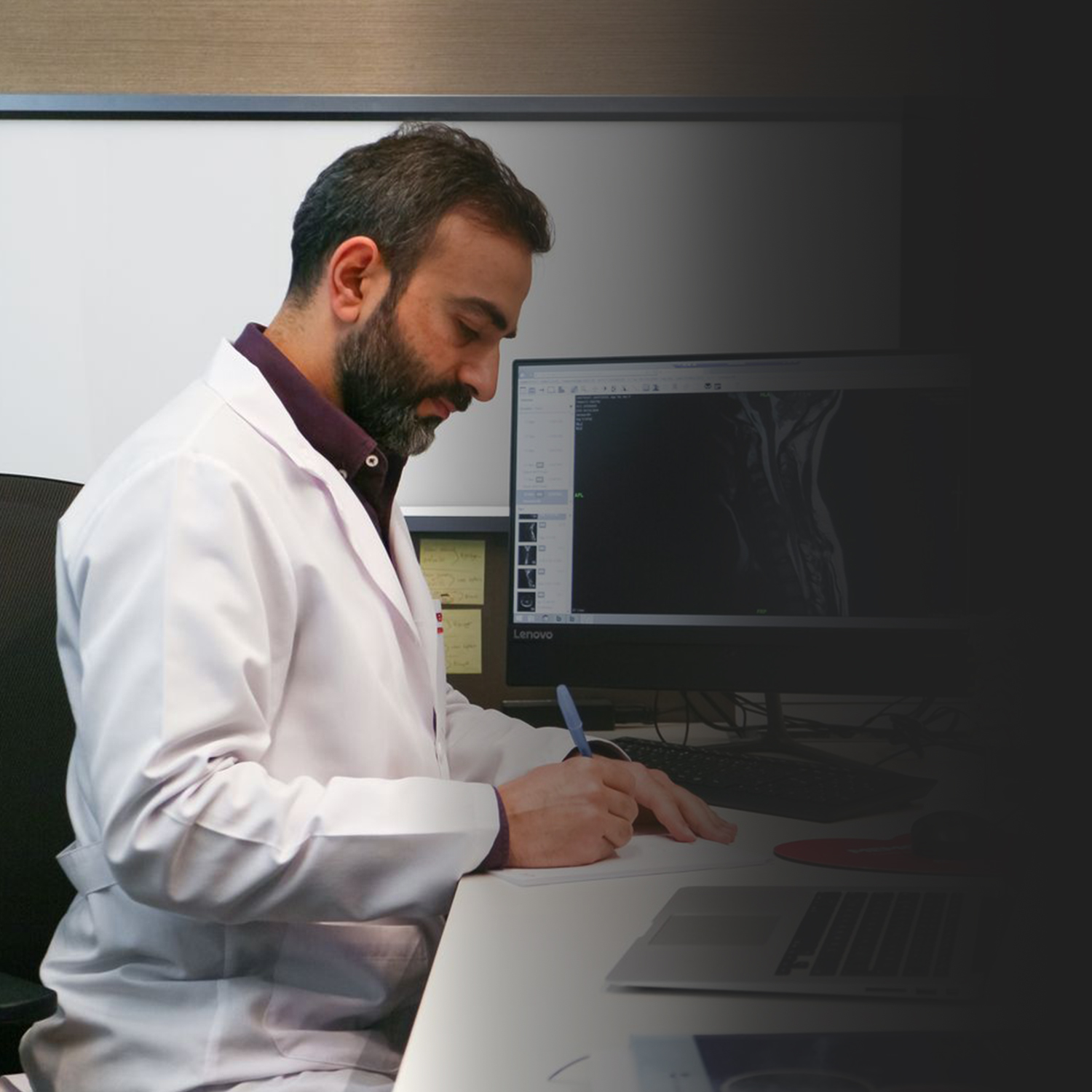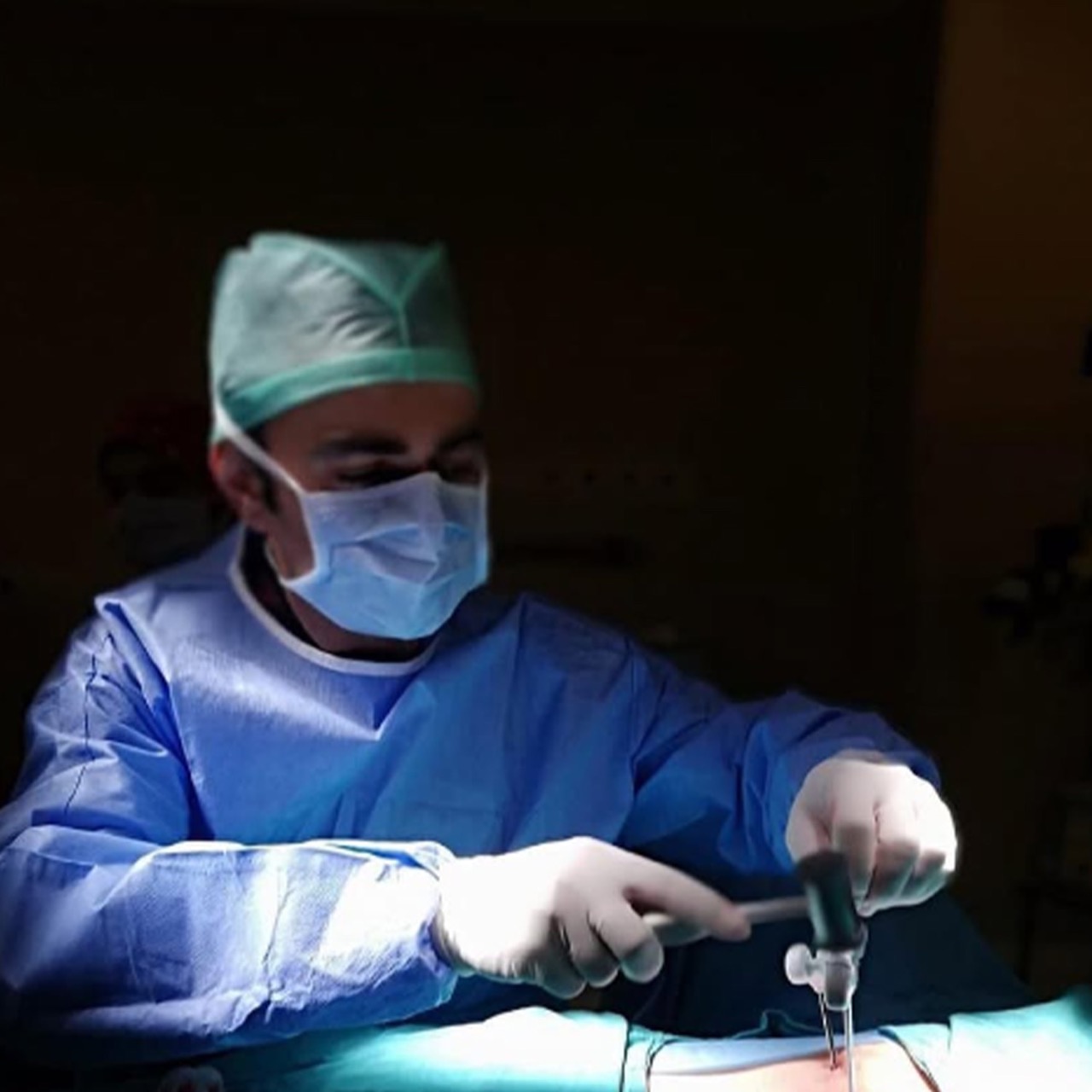
Brain tumor surgery is performed to remove abnormal growths in the brain, relieve symptoms, and improve neurological function. Whether benign or malignant, Dr. Salim carefully evaluates each case to determine the safest and most effective surgical strategy—prioritizing precision, function, and patient safety.
What Is a Brain Tumor?
A brain tumor is an abnormal mass of cells that grows within the brain or its surrounding structures. It may be:
- Primary: Originates in the brain (e.g., glioma, meningioma)
- Secondary: Spreads from another part of the body (metastatic)
Tumors can be benign (non-cancerous) or malignant (cancerous), and even benign tumors can cause serious symptoms due to their location.
Common Symptoms
Brain tumors may present with a wide range of neurological symptoms depending on their size and location:
- Persistent headaches (especially in the morning)
- Nausea and vomiting
- Seizures
- Blurred or double vision
- Difficulty speaking or understanding
- Weakness or numbness in limbs
- Balance or coordination issues
- Memory problems or personality changes
Diagnosis and Preoperative Planning
A precise diagnosis is essential for effective treatment. Dr. Salim uses:
- Magnetic Resonance Imaging (MRI) – gold standard for visualizing tumors
- CT scans – helpful in emergencies or bone involvement
- Functional MRI and DTI – to map critical brain functions
- Biopsy – in selected cases to determine tumor type
- Blood tests and spinal fluid analysis (if needed)
Each case is reviewed through a multidisciplinary lens, especially for complex tumors.
Types of Brain Tumors Commonly Treated
- Meningioma – Often benign, slow-growing
- Glioma (e.g., glioblastoma) – Malignant and aggressive
- Pituitary adenoma – Tumor affecting hormone regulation
- Acoustic neuroma – Affects balance and hearing
- Metastatic tumors – Cancer spread from other organs
Surgical Techniques
Dr. Salim tailors the surgical method based on tumor type, location, and the patient's condition:
- Craniotomy
- Traditional open surgery for larger or deeper tumors
- Involves removing part of the skull for tumor access
- Minimally Invasive Approaches
- Keyhole surgery for small or accessible tumors
- Reduced trauma and faster recovery
- Neuro-navigation & Intraoperative Monitoring
- Advanced technology ensures precise tumor targeting and preservation of brain function
- Endoscopic or Transnasal Surgery
- For tumors near the pituitary gland or base of the skull
Post-Surgical Recovery
- Hospital stay: 3–7 days depending on the surgery type
- Neurological monitoring during and after the procedure
- Physical and cognitive rehabilitation may be recommended
- Regular follow-ups with imaging to monitor recurrence
Risks & Complications
As with any brain procedure, risks exist:
- Infection
- Bleeding
- Neurological deficits
- Swelling (edema)
- Seizures
With advanced tools and techniques, Dr. Salim minimizes these risks and ensures patient-specific planning.
Why Choose Dr. Salim?
Dr. Salim combines global expertise with state-of-the-art surgical tools to handle even the most delicate brain tumors. His careful attention to preserving cognitive and physical function has earned the trust of patients both locally and internationally.
NEED GUIDANCE?
Everything You Need to Know Before Starting Treatment
From scheduling your consultation to preparing for recovery, here are answers to the most common questions we receive from patients—both local and international.
Appointments can be booked directly through our online form or by contacting our clinic via phone or WhatsApp. Our team will guide you step-by-step.
Your initial consultation includes a full evaluation of your symptoms, medical imaging (if available), and a discussion of potential treatment paths, tailored to your unique case.
We help with accommodation, airport pickup, translation, and aftercare for patients coming from abroad.

Patient-Centered, Outcome-Driven
What You Can Expect With Us
When it comes to spinal and neurological care, we understand that clarity, trust, and results matter. That’s why every treatment we offer is designed around one goal, to restore your quality of life through the safest, most effective approach available.
From your initial consultation to recovery, Dr. Salim and our team will ensure you feel informed and supported. We’ll take the time to explain every step, provide personalized guidance, and help you move forward with confidence and peace of mind.

